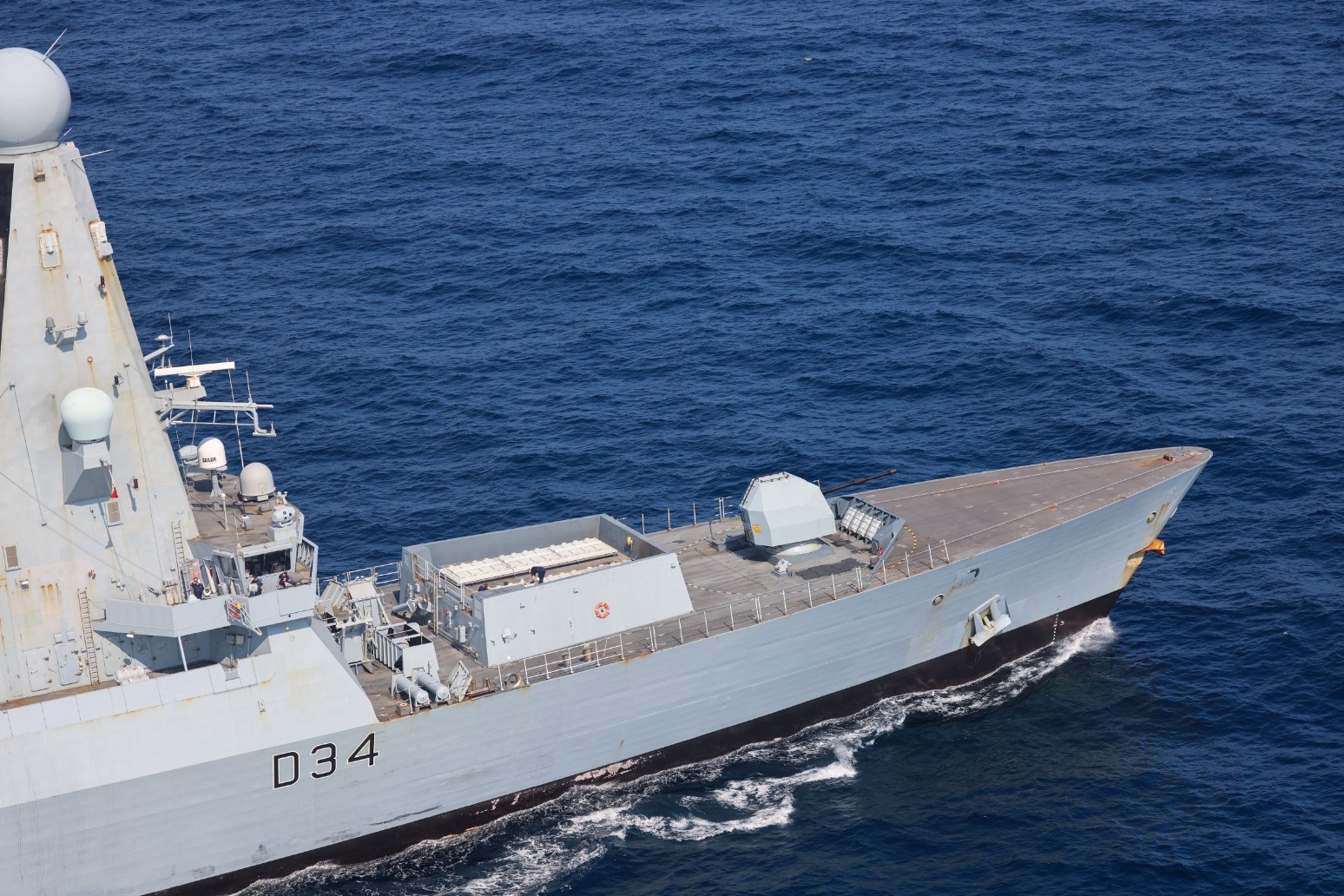
Royal Navy missiles used on Houthi rebel drones to be upgraded
Royal Navy missiles that have been used to shoot down Houthi drones in the Red Sea will be upgraded, the Government has said.
The Sea Viper Air Defence system will get more effective missiles featuring a new warhead and a software update that will enable it to defeat ballistic missile threats.
It will help protect the Navy’s Carrier Strike group and allows tracking, targeting and destruction of a variety of air threats more than 70 miles away.
The £405 million upgrade, awarded to missile systems company MBDA UK, will help sustain 350 skilled jobs across the country and be complete by 2032.
The contracts will make Sea Viper “the most capable naval air defence system ever developed for the Royal Navy”, the Government said as Houthi attacks on ships passing through the Red Sea continue.
It is hoped the upgrade will help Navy ships to better deal with more complex threats in future.
Defence Secretary Grant Shapps said: “As the situation in the Middle East worsens, it is vital that we adapt to keep the UK, our allies and partners safe. Sea Viper has been at the forefront of this, being the Navy’s weapon of choice in the first shooting down of an aerial threat in more than 30 years.
“Our strong and enduring relationship with British industry has ensured we can deploy the latest technological capabilities wherever they are required while supporting hundreds of jobs across the country and bolstering UK prosperity.”
Mr Shapps this week visited HMS Diamond in the Red Sea, where it recently used Sea Viper missiles to shoot down multiple Hoithi attack drones as part of the US-led international taskforce Operation Prosperity Guardian.
The taskforce currently consists of HMS Diamond, three US destroyers and a French warship.
Rear Admiral Anthony Rimington said: “A cutting-edge weapon system, Sea Viper continues to provide the Royal Navy with impressive lethality.
“Sea Viper Evolution further enhances this capability against the more complex and evolving threats and strengthens our co-operation and interoperability with key partners.”
Published: by Radio NewsHub